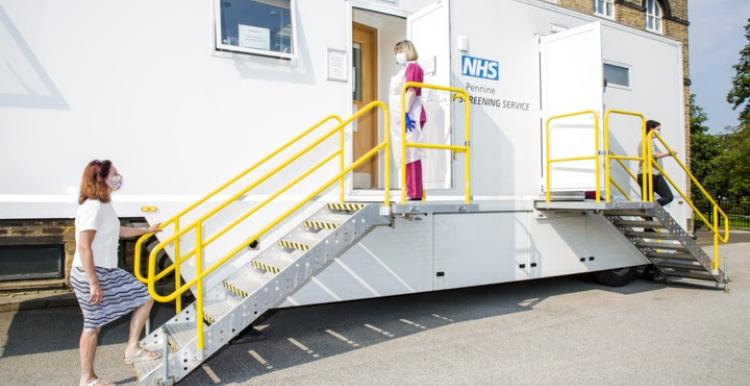How to check your breasts and get screened for breast cancer in Bradford district

This Breast Cancer Awareness Month (October 2023), Bradford District and Craven Health and Care Partnership has been getting out to improve these figures and awareness of the symptoms.
The survival rates for stage one breast cancer (the earliest stage – the cancer is small and hasn’t spread anywhere else) in Bradford District and Craven are in the high 90s and it is the most successful of the screening programmes for health outcomes across the district.
All women who are 50 to 70 years old should be invited for breast cancer screening every three years. If you have missed your screening appointment, call Pennine Breast Services on 01274 365521.
New approaches locally include working with men in the South Asian community to improve their knowledge about breast cancer and screening and help them have life-saving conversations as a family. In addition, work is under way focused on addressing questions amongst the Black African community, who are more likely to present with stage four or ‘secondary’ cancer (when the cancer has spread from where it started to at least one other body organ).
How to check your breasts
“One of the ways to check your breasts for signs and symptoms of breast cancer is to stand in front of the mirror with your clothes off and to raise your arms up and down, do this facing forward and sideways to see how your breasts are hanging. Get to know what is normal for you and if something is different always get it checked out by a healthcare professional at your GP practice,” explains Julie Hodgins, health promotion specialist at Pennine Breast Imaging at St Luke’s Hospital in Bradford.
Councillor Sarah Ferriby, the portfolio holder for healthy people and places, said: “There is some great work happening locally between the NHS, Bradford Council, University of Bradford and voluntary and community sector organisations. We’re hopeful that our joint efforts will reach more people than ever and ultimately increase the number of women coming forward from different communities for a potentially life-saving screening appointment. It’s also important that people check their breasts and look for changes and check anything new or unusual with your GP, even if you’re not currently in the age range eligible for cancer screening.
“A lot of women think they can’t see anything or feel anything so question why they should go to a breast screening appointment. The likelihood is that everything will be okay, but it’s important to get checked so our NHS can help you as soon as possible if treatment is needed. Most women diagnosed with breast cancer are over the age of 50 and the risk continues to increase with age, so I’m urging those between the ages of 50 and 71 to take up the offer of a breast screening appointment when invited.”
Know what is normal for you
Whatever your age or gender, knowing your body and being aware of the symptoms of breast cancer is really important. If found early, breast cancer is very treatable and survival rates are higher. So get to know what’s normal for you and check yourself regularly.
Watch a film on how to self-check


